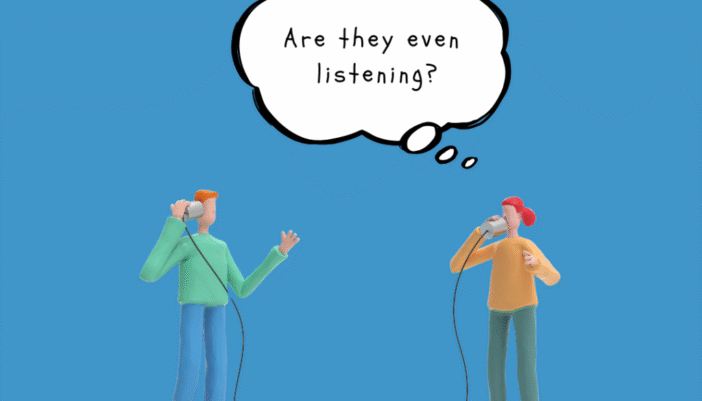You Can’t Be Honest When You’re Bracing for Impact
We all want to be emotionally honest. To speak up when something hurts, to ask for what we need, to be seen and understood for who we really are. But here’s the truth: honesty doesn’t happen in a vacuum.
You can’t be emotionally honest when you’re constantly bracing for criticism, correction, or shutdown. And you can’t build connection in relationships where conversations feel like landmines.
Some relationships feel emotionally unsafe – even when no one is yelling, name-calling, or overtly disrespecting you. And that’s exactly what makes them confusing. Because nothing is technically “wrong,” but something doesn’t feel right.
It’s the snarky comment when you express a real emotion. The eye-roll when you get vulnerable. The shift in tone, the defensiveness, the shutdown—just when you’re about to share something real. These are the subtle signs that your truth isn’t welcome. Not fully.
And your nervous system knows it. Even if you try to brush it off, you’ll notice you start holding back. You’ll rehearse what you want to say before you say it—or not say it at all. You’ll keep the conversation surface-level, not because you’re unwilling to go deeper, but because you’re trying to avoid emotional punishment.
This is how emotional danger trains us to self-edit. To water down what we feel. To shrink our needs. To choose connection over authenticity: because, in that moment, it doesn’t feel like you can have both.
The problem is: this isn’t real connection. When someone can’t hold space for your feelings, your boundaries, or your truth, there’s no room for intimacy. No room for growth. And unless something changes—in the relationship, or in your willingness to speak your truth anyway—that emotional ceiling will stay in place.
And the cost of this goes deeper than just holding your tongue. When you’re constantly bracing for criticism, correction, or shutdown, you don’t just lose your voice—you start to lose your sense of self. You don’t know what you feel anymore, because you’ve spent so long filtering it through someone else’s comfort. You don’t know what you need, because needs have felt like liabilities. And you can’t build true connection, because you’re not really there—just a version of you that’s been edited for safety. Over time, this wears down your confidence, erodes trust, and leaves you feeling lonelier in relationships than you’d be on your own. Because conversations shouldn’t feel like landmines. You shouldn’t have to tiptoe to be loved.
Emotionally healthy people don’t say things like:
- “You’re too sensitive.”
- “You’re overreacting.”
- “Well, that’s not how I remember it.”
- “Let’s just move on.”
- “I was just joking—relax.”
These phrases may not sound dramatic, but they leave a mark. A very important one. They teach us to question our feelings. To hold back. To filter what we say or hide what we need.
Over time, these kinds of responses train us to do something subtle but deeply damaging: we stop trusting ourselves. We begin to second-guess our emotional reality. We wonder if we are being too much. We replay conversations in our head, wondering if we misread the tone, misunderstood the moment, or somehow made it all bigger than it really was. So we start to shrink what we share. We soften our language. We wait to speak until we’re sure it’s “safe.” And slowly, almost without realizing it, we disconnect from our own voice—not because we lack clarity, but because the people around us couldn’t honor it. That’s not emotional immaturity on your part. That’s survival.
If any of this feels familiar, take a deep breath and remind yourself: you’re not broken for struggling to be honest in unsafe spaces. You adapted. You protected yourself the best way you knew how. But now? You get to do something different. You get to notice who feels safe, who stays present, who makes room for your truth—and who doesn’t. And you get to decide that your emotional honesty isn’t a threat. It’s a gift. One that deserves to be met with care, not correction. You don’t have to share everything with everyone—but you do deserve to be real with the people who’ve earned it. Little by little, you can come back to your voice—and start building relationships where your truth isn’t just tolerated… it’s welcomed.




